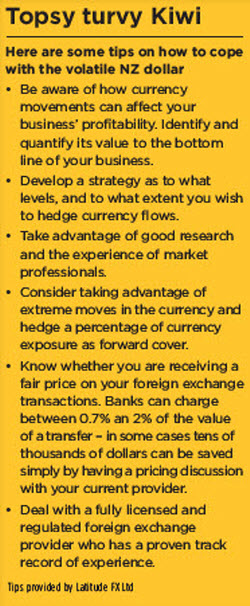 Certified organic food and beverage products contributed $485 million to the New Zealand economy in 2009, according to new research done by Organics Aotearoa New Zealand (OANZ).
Certified organic food and beverage products contributed $485 million to the New Zealand economy in 2009, according to new research done by Organics Aotearoa New Zealand (OANZ).
The New Zealand Organic Report – commissioned by OANZ and prepared by the University of Otago – shows the total value of New Zealand’s domestic market for organic products has increased to $315 million, with an additional $170 million contributed by organic exports.
OANZ Chairman, Derek Broadmore, said that New Zealand now had 1,145 certified organic farmers, producing on more than 124,000 hectares.
“New Zealand’s organic sector has grown to a total value of $485 million in 2009, up from $330 million in 2007 and $140 million in 2005”, Broadmore said.
“This rapid growth shows a continuing concern about what is in our food, and how it is grown.
“Domestic organic sales are dominated by processed foods – 38% of sales – with fresh fruit and vegetables making up 26% of sales.
“There are also trends towards people buying more local and domestic products at organic specialty stores, and increasing their purchases of fresh products,” Broadmore said.
He added that the increases in sales of organic dairy products (growing almost 400% since 2007) and beverages (430% since 2007) have boosted New Zealand’s organic exports.
The report also highlights areas of growing interest around organic fibre and textiles, and the role of organics in eco-tourism.
Broadmore says New Zealand’s organic sector is in a strong position to achieve OANZ’s value target of $1 billion by 2013.
Organic farms also have levels of biodiversity and store more carbon in soils, he said, adding that many organic farmers were producing high-quality food, beverage and fibre products while pushing the boundaries of environmental best practice.




